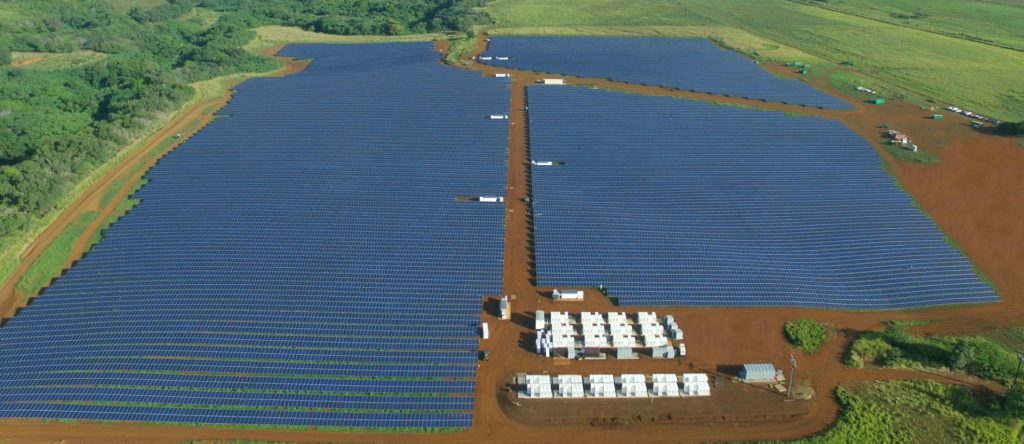
Electric cooperative members in Hawaii will be getting even more power from the sun, and they’ll be using it at night.
Kauai Island Utility Cooperative is adding 14 megawatts of solar generation to its portfolio and boosting battery storage by 70 MW hours of capacity.
“KIUC’s board of directors set an aggressive goal of reaching 70 percent renewable by 2030,” said David Bissell, CEO of Lihue-based KIUC. “Once this project is complete, we will be very close to that mark a decade early.”
AES Distributed Energy is building the project on Kauai at the U.S. Navy’s Pacific Missile Range Facility – Barking Sands, leased from the Department of Defense.
“The 19.3-MW solar array and battery storage will produce enough electricity to energize 6,000 homes,” said Bissell. “It also reduces our diesel demand by about 2.8 million gallons a year.”
With no refining capacity in Hawaii, every drop of diesel used by the co-op is shipped in from ports on the U.S. mainland. That’s made boosting renewable capacity and reducing fossil fuel dependence a central part of KIUC’s strategic planning.
The DoD first issued requests for proposals for a renewable energy project at Barking Sands in 2009. KIUC began looking for ways to participate that not only would meet Navy goals, but also would help it produce reliable, affordable power for its members.
A 25-year power purchase agreement gives the co-op access to all electricity generated at the site by AES at less than 11 cents per kilowatt hour, said Bissell. “It will also be one of KIUC’s lowest-cost power sources.”
The contract allows the DoD to “island” the project’s output for exclusive use under certain circumstances to meet base energy needs. About 1,000 military personnel and civilian employees, including hundreds of co-op members, work on the military installation.
KIUC has established itself as an industry leader for energy storage. A project developed with Tesla in 2015 was the first utility-scale solar/battery storage project in the world. Since 2017, the 13-MW solar project stores up to 52 MWh of electricity, primarily to help meet peak evening demand but also to provide grid stabilization as needed.
A second 28-MW solar array with 20 MW of five-hour battery storage capacity is now under construction.
The co-op is also developing a pumped-storage project that will use power generated by a solar array to move water to an upper reservoir during the day for release to a lower reservoir at night to produce hydroelectric power. The project will add 25 MW of generation to KIUC’s renewable portfolio. Reservoir development will also improve irrigation options on western Kauai, allowing for agricultural revitalization.
“These storage projects are moving us rapidly closer to our renewable goals,” said Bissell, adding that the co-op should meet 65 percent of its demand with renewable power by late 2019. “Partnerships between KIUC’s engineers and those of some of the best renewable energy companies in the world are making the impossible a reality.”
Derrill Holly is a staff writer at NRECA.